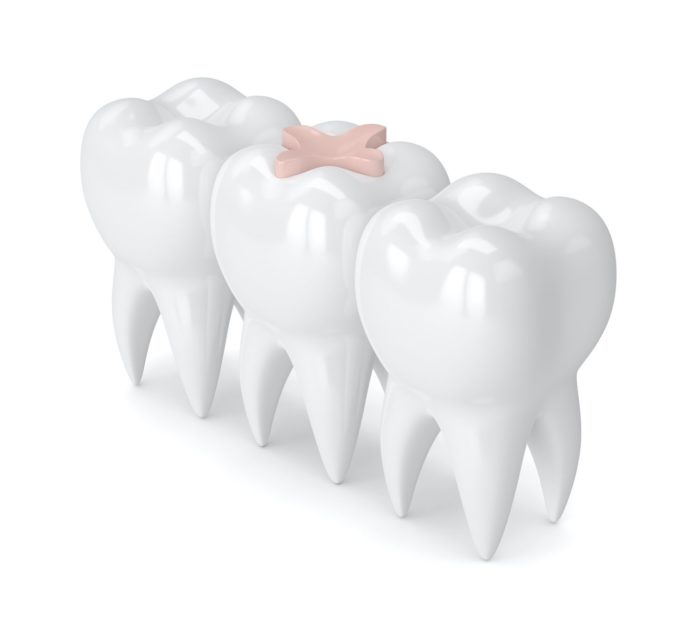A majority of people will form at least one cavity in their lifetimes. This means you are likely familiar with treating this early stage of tooth decay with a dental filling. The dentist drills away the decayed part of the tooth and fills the resulting hole with composite resin.
Despite the prevalence of this treatment, you might feel nervous about undergoing dental work. You might especially have concerns about introducing a new fixture to your dental structure. Read on to learn more about what you can expect when you receive cavity treatment with dental fillings.

How Long Do Dental Fillings Remain in a Tooth?
When your dentist gives you a dental filling, it can last for ten years with proper care and maintenance. Composite resin is malleable, allowing your dentist to sculpt it carefully to the unique shape of your tooth. Then curing it with specialized light hardens it into a durable filling.
It also acts as a cement, remaining firmly in place after it hardens. You can chew and perform other oral functions as you normally would without issue. However, you will need to take care of your smile to avoid any issues with the filling. It is not indestructible.
Can Dental Fillings Fall Out of a Tooth?
Though strong and reliable dental fixtures, fillings could loosen, wear down, or fall out of the tooth if exposed to abnormal pressure. If this occurs, the seal over the vulnerable part of the tooth breaks, and the tooth is in danger from plaque, bacteria, and more harmful residues.
This issue should be considered a dental emergency. Call your dentist as soon as possible if you sustain damage to a dental filling. They will likely ask you to come to their office for urgent repair or replacement of the filling.
Biting down on a hard item or at an awkward angle could generate pressure that could hurt a dental filling. Constant grating from chronic behaviors like teeth grinding could also lead to harm to your dental work. Pay attention to your oral habits to preserve your smile after receiving a filling.
How Can I Take Care of Dental Fillings?
As mentioned, poor oral behaviors that create pressure on your smile could hurt your dental filling. Avoid these actions to prevent a dental emergency that involves damaging a filling.
You should practice good oral hygiene too on a regular basis to protect your filling and the rest of your smile. Plaque and tartar build-up could harm the area surrounding your filling, which may cause problems in this dental work.
Therefore, you should brush your teeth twice each day, floss daily, and visit your dentist for routine teeth cleanings. This will remove plaque effectively before it can impact your oral health and dental work.
Follow aftercare instructions directly following your cavity treatment so that your dental filling can settle into your smile properly. If you notice any issues, call your dentist right away.
